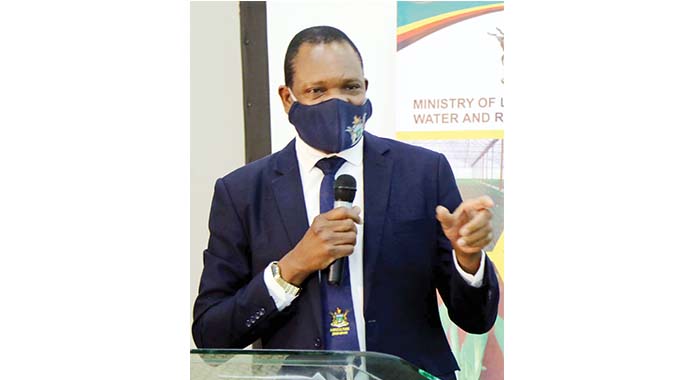
Oliver Kazunga, Senior Business Reporter
ZIMBABWE agricultural land backlog stands at over 200 000 and the Government will soon be availing the land to potential beneficiaries once modalities on the land audit are complete, a Cabinet Minister has said.
Last year, it was reported that the third and final phase of the land audit was underway after which the Zimbabwe Land Commission will be required to rationalise ownership and farm sizes.
The two previous audits have recommended an integrated Land Information Management System (LIMS) after investigations revealed some cases of fraudulent occupations, illegal leasing and underutilisation of some land.
Speaking on ZBCtv current affairs programme, Face the Nation last week, Lands, Agriculture, Fisheries, Water and Rural Resettlement Minister Anxious Masuka said there has been interest in land by Zimbabweans in the Diaspora and Government was excited that land can be used as a vehicle for economic development.
“We have got more than 200 000 applicants on the waiting list.
“They should apply because we think that land is going to be unlocked and accelerated because we are doing these audits and also productive returns where we are a targeting multiple farms, abandoned farms and underutilised farms.
“But for now we are sparing all the productive farms irrespective of the maximum size,” he said.
The agricultural land backlog, Minister Masuka said was building at a faster pace than it was moving because of the interest exhibited especially by the younger generation in owning land.
In this context, the Government recently gave new policy guidelines across all the district and provincial land committees to try and allocate quotas to different demographics in the country.
“And youths are now allocated 20 percent of the land that is to be given out so that we can accelerate their access to land and their entering into the agricultural business area,” he said.
Of late, concerns have been raised that a lot of Zimbabwe’s irrigable land was underutilised, posing a threat to the country’s food security, although the farms have the potential of being highly productive.
Minister Masuka said Government was also parcelling out agricultural land for productive use through joint ventures, which was faster than going via the waiting list arrangement.
“We have now allowed joint ventures to take place on the farm. You don’t have to own land in order to do business on it, so this jojnt venture will allow them to identify a land holder, someone with a lease and then they can enter into a joint venture where they will be able to provide financial and technical resources,” he said.
Minister Masuka reiterated that the Second Republic has declared that “Zimbabwe is open for business” and thus the country welcomes everyone including former white commercial farmers who “genuinely” need to invest in agriculture.
“The Zimbabwe Government has said we are open for business and that being open for business, we welcome everyone who genuinely wants to do business with us.
“And agriculture is a business, which is why we have come up with a joint venture framework that is recognisable by the Ministry,” he said.
“The former farm owners who enter into joint ventures, they are free to do so provided they follow this route (joint venture arrangement).”
Minister Masuka said the joint venture framework was for farming and not about who holds the land.
“The land remains with the lease holder while the investment is taking place recognising that the lease holder is the owner of the piece of land and this one is coming as an investor and hence the joint venture, so the land aspect is not affected by the joint venture,” he said.
In July last year, Cabinet approved the first clean-up of land allocations as a result of the ongoing farm audit, with reallocation of 24 farms under multiple farm-ownership and 367 abandoned or vacant farms, and downsizing of 71 farms to the maximum permitted size for their ecological region. — okazunga
